It is almost impossible to figure out how the universe works. A mystery perhaps never meant to be solved, for Clayne Crawford and Summer Shelton it seemed destined they were to work together. Born and raised down south, Crawford manifested a successful career in major Hollywood projects from a young age with roles in films such as 2002’s Swim Fan, leading to impressive later career performances on hit series like Rectify and Lethal Weapon. However, now older and wiser, Crawford has opted to seek projects that speak to him on a deeper level.
On the other side of the aisle, Summer Shelton is an award-winning film producer who has built her career independently from the ground up. Also from the south, Shelton has consistently created fascinating projects and continues that with her new film You & I. A film she directs, produces, wrote, and co-stars alongside Crawford, it is a true-to-life story of love, heartbreak, and everything in between. A perfect fit for both talents, Clayne Crawford and Summer Shelton took some time to chat about their careers in film, crossing paths, artistic fulfillment, and more.
Cryptic Rock – You have both been involved in film for quite some time now in different capacities. Putting in years of hard work, how would you describe your journeys in film, television, and entertainment to this point?
Summer Shelton – Phew. Difficult, challenging, rewarding. Let’s just put it this way. It’s a marathon. You just have to approach it one story at a time, but always be mindful of what you want to do and who you want to be. When I started my career, I was a producer because that’s just what I started doing. Somebody needed and wanted to make a movie, and they told me what they needed, and I just started doing everything, and that’s how I learned.
I didn’t come from a place with a lot of contacts. I didn’t come from a lot of money. I knew I had to carve my niche out by having IP. I just learned everything I could about how to make a movie. That’s really how I started my career up through production, producing, learning how to run a set, management, and everything so that I could get work doing that. Then, around 40, I just had my epiphany of saying, “I’m ready to share my own voice.” That’s what led me here.
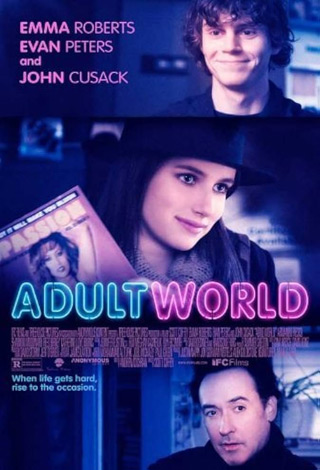
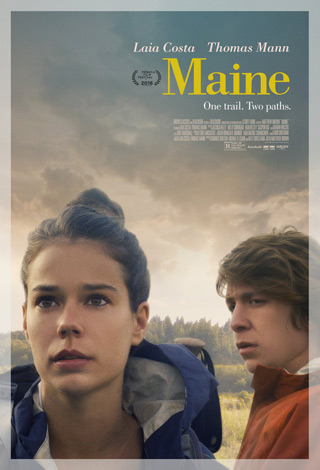
Clayne Crawford – It has been very similar for me. I grew up in a very small town in rural Alabama, so zero contacts. I might as well have told my parents I was going to become an astronaut when I said I was going to go to Hollywood and be an actor. It just seemed so out of this world.
Of course, didn’t grow up with money. I really had to go out there and just figure it out. I didn’t have the money to go to acting classes. They were so expensive. I had to figure out how to get on set as quickly as possible so that I could provide for myself and also learn how to do this thing I wanted to do. I was lucky that I was 18 out there. If you’re a young kid, you can find your way onto something. For me, it was Buffy the Vampire Slayer as a co-star.
I had a similar epiphany at 40 where I’d been working for everyone else doing things that didn’t always fulfill my soul or my artistry, which I certainly feel as an actor that I’m an artist. At least I always try to have something to say with my characters. I kind of wanted to do my own thing.
That led to me making my own films and then opening myself up to other artists who were outside of the Hollywood circle. That led me to this project, You & I, and Summer’s very intimate, personal story. I’m drawn to that. I’m drawn to any director who wants to reveal a piece of their soul and possibly utilize the medium as therapy in some way. That was very exciting.
Cryptic Rock – It is fascinating to hear a little bit about both of your stories. It’s even more so that you have come together for You & I. In many ways, you seem like you have a little bit of a similar background, coming from a working-class background and not having a foot in the door, per se, and you built it yourselves.
Summer Shelton – Yeah. There are definitely lots of similarities in the background. Very fortunate that the paths cross now.
Clayne Crawford – I don’t think there’s any way to build it. I think if you want it to be stable, it’s like anything in this world, and more so today than ever. You have to do it yourself. If you’re continuously relying on others, then it’s a treadmill. If you want to move ahead, then it’s got to be by your own two feet and your own drive. No one’s going to tell you to get your ass up and to keep going.
I thought Summer was ambitious when I met her. She was like, “I’m going to act, direct. I wrote this thing. ” Then she edited it, she’s doing sound design, and she’s all over the map. She was self-teaching herself throughout the entire process. That was encouraging.
I find so much in this industry that people are always kind of waiting for the phone to ring and expecting others to see their vision and love it as much as they do. That’s just not always the case. I was very inspired by Summer’s journey. I’m grateful to be a part of it.
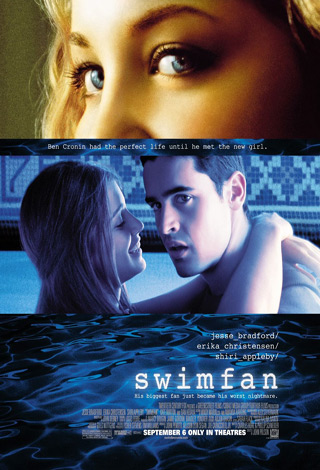
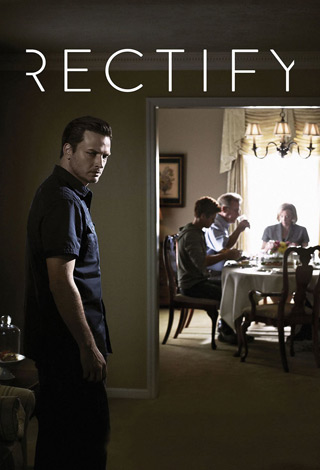
Cryptic Rock – It is very inspiring to hear about it. Now, Summer, it is understood that this story the story for You & I was written during the COVID lockdowns. You have dedicated a lot of yourself to filmmaking through the years, and as a result, relationships sometimes suffer. Engulfing yourself in your craft you did not have much time to build relationships. It is interesting to see all this come together in your film. It is not a true story, but it is based on real-life feelings.
Summer Shelton – Oh, yeah. Definitely. The only spoiler alert I’m going to give is Joseph’s not a real human. There’s no one specific Joseph. It’s more of an amalgamation of different feelings and experiences that I’ve had in my life through various relationships with very good men that, sadly, the relationships just didn’t end well, or just because the relationship ended doesn’t mean either were bad people.
I wanted to make a love story that’s just about the kind of love that I actually know to be true, which is poignant and pretty painful. I don’t come from the world of hearts, sunshines, and clouds. My reality is very different. Love is very complicated. Some people have it in small moments, and some people are fortunate enough to have it for a lifetime.
I wanted to create a relationship on screen that was a little bit of both of those things, even though they might not be able to be together, that sometimes people can live with you in the way that they make you feel. I really wanted to make a movie that was character-driven where I could showcase my abilities and talents. Hopefully, at the end of the day, people would think that it felt honest and truthful to what relationships really are like, which is usually pretty complicated and not so easy.
Cryptic Rock – Most certainly. It has a real-life feeling to it. Everyone has different experiences. There is something to be said about a story that everyone can relate to in one shape or another; because at some point in our lives, we navigated our way through love and finding someone. What was it like bringing the chemistry together between the two characters?
Summer Shelton – What’s interesting is that our pasts have a lot of overlap just as people; we didn’t know each other prior to making this film though. I binge-watched Rectify during the pandemic and said, “I want to write a movie for this guy. He’s amazing.” So I did.
I was very inspired by the nuance of how close to the reality that I knew. Here’s another Southern person that feels like home to me. It turns out we both come from farms and rural areas and have a lot of overlap. I think that having that background and foundation can help expedite something when you feel a little empathy towards the world where people come from.
That helps expedite a level of respect and understanding of maybe deciding where you want to go. I was just very blessed that he didn’t think I was a complete crazy cake and was willing to come make a movie with me during COVID after getting this script and package in the mail from this woman he’d never met asking to come be in this romance movie. I’m sure it was a little strange, but I’m grateful.
Clayne Crawford – When she says sent a package, it was probably the most thorough breakdown of what she planned to do from visual to textual. Summer has a way with words outside of being an incredible screenwriter. She can structure an email that is so clear, concise, and well thought out.
I had a lot of confidence going into this. A lot of times the hesitation when you work on these smaller films is that it’s going to be bush bleed. If someone just says, “Hey, this is why this film is so small because I want to tell it my way,” that’s exciting.
Summer’s right. When you’re from the part of the country that we are, there’s a way people communicate. When you meet your own kind, it’s very comforting. It definitely gets you over the hump because there’s not a lot of us out in LA. There’s not a lot of southerners that are in the industry. Rarely did I grow up hearing people the way that I talk. When you meet another one, it’s a bit exciting. You’re always excited to tell a story from a lens that you’ve looked through before.
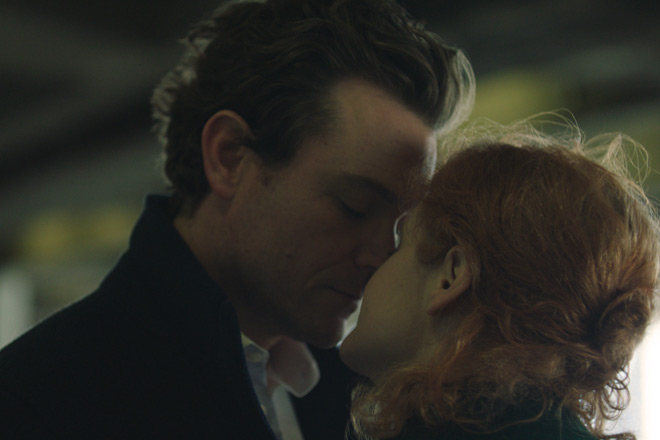
Cryptic Rock – That lends itself to a better chemistry between the on-screen characters. Clancy, you have worked in a lot of different genres – Dramas, Thrillers, and Action. This is one of the first dives into more of a romantic direction. What was it like for you to work in a Romantic film like this?
Clayne Crawford – It was certainly a new experience. I’ve shunned away from them because they never have much to say. Not the ones that come across my desk anyway. They were more Rom-Com, the romance thing, and just not anything I’ve ever been interested in.
I certainly love Comedy. When I started this business and wanted to be an actor, Romance was not something I was interested in exploring. But this, again, was her heart and soul on the page. I knew very quickly that this was a personal story.
If it’s that intimate and that raw, I’m interested. I knew that this would be more of I was supporting another artist. I felt this was her journey. That was another reason why it was enticing. There was no villain in this story.
Summer had said before, time is the only true black hat in this film. That was exciting that it was going to be told from both perspectives and allow the audience to have empathy for both sides. That was exciting.
Cryptic Rock – It certainly is a unique way of telling the story. Another interesting aspect here is, Summer, you have largely worked in an independent film capacity for most of your career. On the opposite end, Clayne has worked in Hollywood but decided to step more into an independent world to fulfill artistic needs. Everyone has different experiences and brings different experiences together. Coming from Hollywood going to independent, what did you two have to offer each other?
Clayne Crawford – I started in studios to do films, and I did a couple of them back to back when I was a kid, like in my twenties- A Walk to Remember (2002), Swimfan (2002), and The Great Raid (2005). I just felt unfulfilled as an artist. I had that feeling, even in my early 20s, I moved away from everything I loved to pursue this. Then I went and I started doing Steel City (2006) and going to Sundance with The Perfect Host (2010) and some of those kinds of films. When Rectify came along, I started to get back into the studio. Then there was Lethal Weapon… which didn’t turn out to be the best experience for me. I almost went back to, “What do I love? Why am I doing this?”
I turned 40, and I was like, “Okay if I’m going to continue and do this for another hopefully 40 years, what do I want that to look like?” Now kind of have the wherewithal… because I was a dumb kid when I moved out there right out of high school. To have that 20 years of experience and go, “Okay, what would I do differently moving forward,” and still have that opportunity. It was just to tell great stories and, a lot of times on the big stuff, the Hollywood version, you learn what not to do.
There’s a lot of wasted time, wasted energy, wasted money. It becomes a big game of telephone a lot of time. Everyone is there, fearful of losing their job at a moment’s notice. Fearful of doing the right thing. Fearful of whether are we going to make our money back. Fearful if there are going to be ads. When you’re creating art, it’s to come from a place of love, enthusiasm, and exposing something inside of yourself.
That’s what independent film is. Summer’s project embodied all of those things. It’s a very small cast, certainly because of COVID we had to keep things minimal. It’s just also not necessary to tell stories anymore on these large scales, related to having a big footprint with trucks and human beings. I think what we both brought to this is just a very level-headed, realistic approach to storytelling and what’s important.
For Summer, what was important was performances. That’s always exciting to me as an actor. Watching Summer very early on, she was not precious about the words that she had written. Meaning that, because we shot everything in order, Summer could take what we had and go, “Okay, we don’t need to say that here.” Summer was great about realizing what we could tell through our physicality and what didn’t necessarily have to be vocalized.
Watching Summer navigate, and it being her first time, sometimes ego can get involved. Sometimes I can find first-time directors will kind of pound that square peg into a round hole. Summer was always willing to do what was best for the project, not what was best for my own personal ego. That was super exciting. The film is a testament to that.
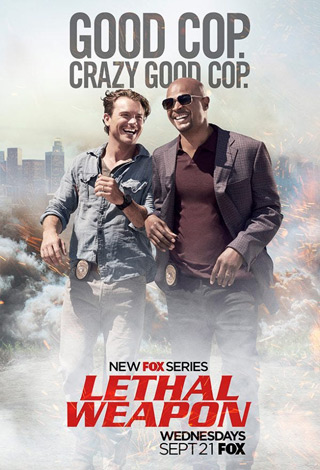
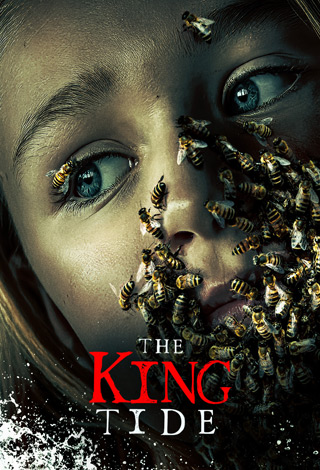
Cryptic Rock – Well, it seems like it was a very fulfilling experience all around for both of you. The last question is based upon what we’ve been talking about, both your backgrounds being from the South and not feeling at home at times in Hollywood, etc.
There’s a difference between the West Coast, the East Coast, the South, and the North. It is fascinating to learn how different people conduct themselves. What do you find is the biggest difference between people’s personalities in your experience, how they approach things, their warmth, and their approachability?
Summer Shelton – For me, even when I set out and wanted to make this film with the Southern cast and about Southern people, there were certain tropes that I refused to put in the film because it’s not the South that I know to be true. What was important to me is to hopefully show characters that have the nuance of Southern people that I see, which is a level of tact, tradition, appropriateness, being kind, and what you say outwardly.
There are also these unspoken words that you can just be in a room with people and know what they want to say without having to say it. Maybe because of a lot of conversations we’ve had to repress over the years or just not say. There’s so much about tact and manners and things that are important. What I really loved about being able to make this film with fellow Southerners was that, thankfully, we were able to communicate in the way that Southerners do without words. There’s a lot of just sounds.
I know playing out to most people, people would probably have the most boring conversations in comparison to other people. We don’t always have words to say, but it’s a lot of sounds. It’s mm-hmm, yeah, uh-huh. It’s just a lot of sounds, and you can have conversations. That just led to physicality, being in a room, and being able to read the moment and the instinct that you have with someone. Not always having to rely on your words all the time.
A lot of things in the South are things that you do when you don’t speak. It’s a lot about your actions. You’re taught to listen twice as much as you speak. That’s why God gave you two ears and one mouth. It’s a few things like that. I don’t want to say that this isn’t in the North, but it’s just what I know the South to be true of. There’s a level of complexity to people that goes beyond the surface. There is often a time and a place behind closed doors where you can’t address things that you just don’t shout out on the street. That’s just not the way you do things.
Clayne Crawford – I think she’s 100% accurate. There’s a shorthand when you’re both in the same place. We prefer comfort as humans. I’ve been so blessed to get to travel to places and parts of the world that you wouldn’t necessarily take a vacation to. We get maybe a vacation a year if you’re lucky. Rarely are you going to take a vacation to Newfoundland, the Iron Range in Minnesota, or one of these little tiny islands off of Maine. I’ve been fortunate enough to go and do films in these locations.
I will say that in the smaller communities, there are more similarities than not. Sometimes there may be a certain vernacular or a dialect that might be a little different than what I’m used to, but the hearts are very similar and the kindness and the generosity, of those who are eager to build their communities, I find that people are inherently good.
There’s more distance between America as a whole and say, Los Angeles. I don’t think that’s true for necessarily New York, because it’s not a city that’s based on the industry. For some odd reason, there’s just a great disconnect between Hollywood and the rest of the country, which is odd considering we’re making content for the people.
As it relates up North, I’ve got family in Jersey and there’s a country of cornbread. They just talk a little different. I don’t know how different we are.
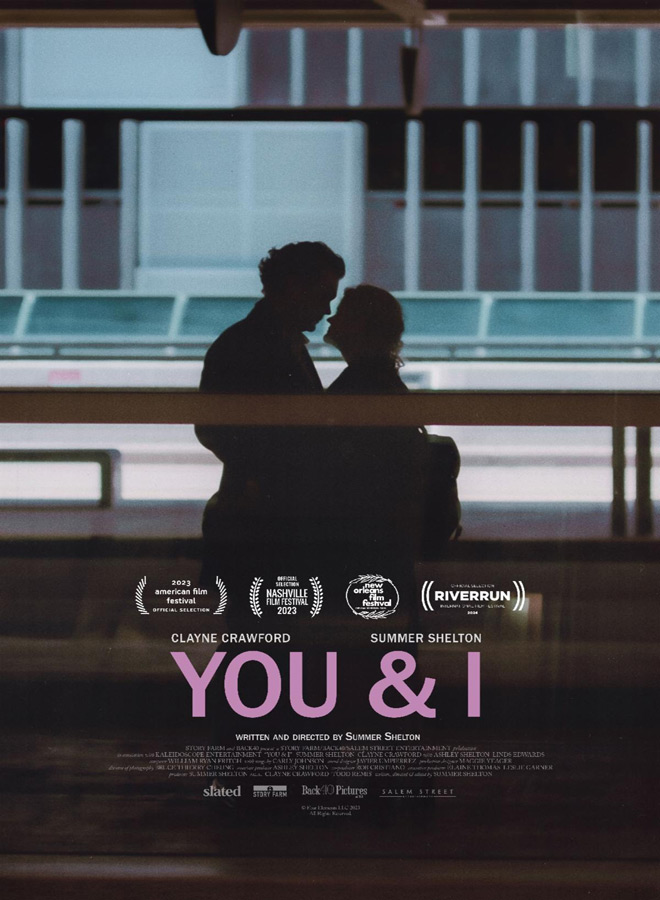

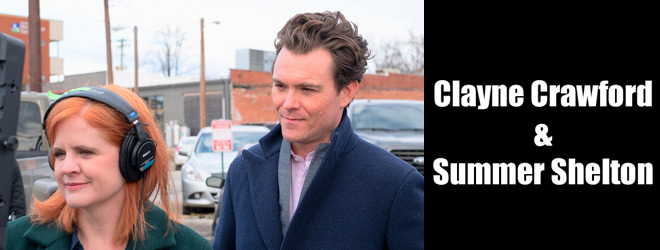
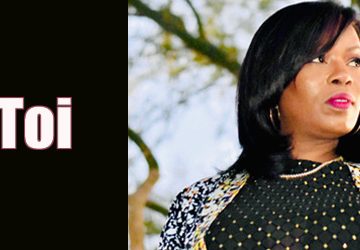
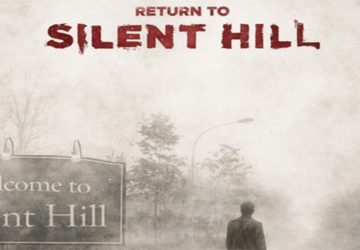


No comment